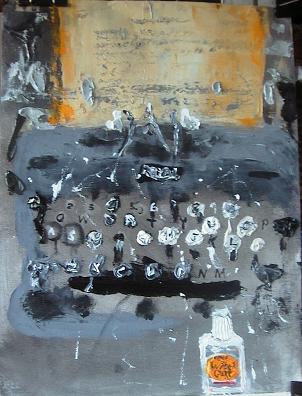Monday Movies Can Tell You This: If You Build It, It Will Fall
If you’re ever toodling around southern Colorado on a Tuesday, Thursday, or Saturday, anywhere between Durango and I-25, you could do worse than to stop in to the Ryus Avenue Bakery in La Veta. Tell my Aunt Adrienne I sent you. She’s owned the place, with her partner Mary, for the last 21 years, and she’s been in the area since 1970. That was when the band she played drums in, the Anonymous Artists of America, who used to open for the Grateful Dead at Kesey’s acid tests (they merit a mention in Tom Wolfe’s book) decided instead of being a band they’d rather be a commune, and so they found some land in Huerfano County, not too far for from the Great Sand Dunes. The AAA Ranch made it through the first winter in teepees, and then they built permanent structures, and in some fashion they remain there today, as do several other communes.
The documentary Huerfano Valley picks up with three of the veterans of the Huerfano commune scene — George, who still lives at the AAA (and whom I’m going to join for dinner after I write this on Sunday afternoon); Dean, who lives at Libre; and Muffin, who left Libre and works as a veterinarian in Huerfano County. Each reflects a certain flavor of sadness about this very American god that failed.
George leads the camera into the remains of houses built too high on the mountain to reach, a metaphor that director Elisa Larvego knows better than to call any more attention to than necessary. He trudges up and down the AAA’s hills, spinning melancholic tales, wearily poking through what he calls his “hippie ruin”. His songs, originals and covers on mandolin and guitar, accompany the film; he sings in the breaks of his voice, cracking the melodies open to mix sweetness with the sorrow.
Dean, painting big, colorful canvases in his studio at Libre, also conveys a sense of sadness about the pursuit, but where George is melancholic, Dean reflects the grace that follows grief. He lost a wife and a daughter while at Libre; he reflects on how much he thought he’d given up by coming out to Huerfano, and how much more loss he experienced beyond the expectations of his intentional communities. He takes Elisa up on the mountain he thinks about jumping off when he’s ready to end it all. “But if I can still make it up here,” he says, “then I might as well live.”
Muffin, who addresses the camera both from her horse stable and from her hot tub, has the most perspective on the whole affair; she watched her kids grow up with hippie values but, understandably, yearning to experience the material world she’d rejected. There’s little in her memories that suggests Libre ever struck her as a sustainable project; she remains haunted by a woman, Alex, who went missing, and whose body Muffin half-found floating in the pond, knowing it was there but only half-perceiving it out of the corner of her eye before returning to the camp and putting the onus on someone else.
The film is only 67 minutes long and lets its subjects tell their story without embedding it in historical context or judgement. A narrative of ruin and disappointment emerges, but it’s too personal to be a generalization condemning (or celebrating) commune culture. There are a few sociological guesses — Muffin describes what happened when the pot culture went from growing and sharing to growing and selling (to the tune of George singing “Money Changes Everything”); George suggests that intentional communities won’t succeed unless mutual intention is met by mutual need. There are more stories to tell about the communes — here’s one, by one of their contemporaries — and they are not without accomplishments that live on in the culture. But this is not that.
Both the landscape and the living spaces are documented beautifully. It’s hard to avoid a permeating sense of Kunderan lightness, the terror of rootlessness. The communes chose to live lightly upon the land, to approach the push and pull of civilization with much less push than their parents had. The indifferent wilderness will swallow their works back up sooner than most of ours, and might that not be all right? In the meantime, Aunt Adrienne’s bakery has a strong hint of commune flavor (in its sociability, not its hygiene. George claims that his peers were “the original dirty fucking hippies”). Not to mention amazing jalapeño cheese bread. Stop in!
